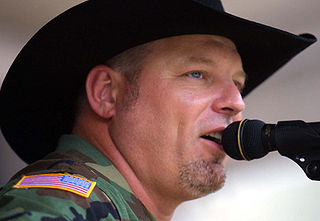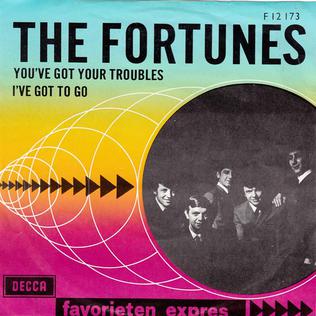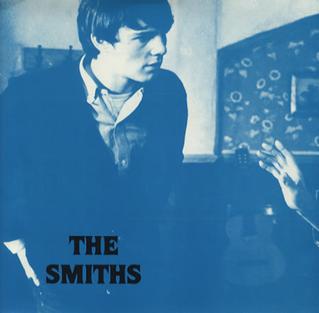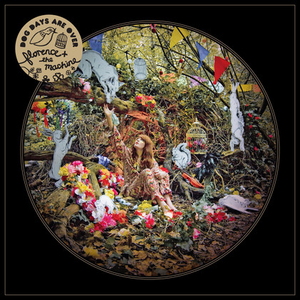
"Yesterday" is a song by the English rock band the Beatles, written by Paul McCartney and credited to Lennon–McCartney. It was first released on the album Help! in August 1965, except in the United States, where it was issued as a single in September. The song reached number one on the US charts. It subsequently appeared on the UK EP Yesterday in March 1966 and made its US album debut on Yesterday and Today, in June 1966.

Tracy Lee Lawrence is an American country music singer, songwriter, and record producer. Born in Atlanta, Texas, and raised in Foreman, Arkansas, Lawrence began performing at age 15 and moved to Nashville, Tennessee, in 1990 to begin his country music career. He signed to Atlantic Records Nashville in 1991 and made his debut late that year with the album Sticks and Stones. Five more studio albums, as well as a live album and a compilation album, followed throughout the 1990s and into 2000 on Atlantic before the label's country division was closed in 2001. Afterward, he recorded for Warner Bros. Records, DreamWorks Records, Mercury Records Nashville, and his own labels, Rocky Comfort Records and Lawrence Music Group.
Billy Vera is an American singer, songwriter, actor, author, and music historian. He has been a singer and songwriter since the 1960s, his most successful record being "At This Moment", a US number 1 hit in 1987. He continues to perform with his group Billy Vera & The Beaters and won a Grammy Award in 2013.

"You've Got a Friend" is a 1971 song written by American singer-songwriter Carole King. It was first recorded by King and included on her second studio album, Tapestry (1971). Another well-known version is by James Taylor from his album Mud Slide Slim and the Blue Horizon. His was released as a single in 1971, reaching number one on the Billboard Hot 100 and number four on the UK Singles Chart. The two versions were recorded simultaneously in 1971 with shared musicians.
Unit 4 + 2 were a British pop band formed in Hertfordshire, England, who had a number one hit on the UK Singles Chart in 1965 with the song "Concrete and Clay". The track topped the UK chart for one week.

Maybe You've Been Brainwashed Too is the only studio album by American alternative rock band the New Radicals. Released October 20, 1998, it is their only album release before disbanding in 1999. The album charted in several North American and European countries, and was frontman Gregg Alexander's third album, following two unsuccessful albums released in 1989 and 1992. For the album's recording, Alexander enlisted numerous session musicians and is the only band member to perform on every song. The album's musical style was compared to numerous rock artists, including Billy Corgan, Chumbawamba, and the Rolling Stones.

John Michael Montgomery is an American country music singer. Montgomery began singing with his brother Eddie, who would later become known as one half of the duo Montgomery Gentry, before beginning his major-label solo career in 1992. He has had more than 30 singles on the Billboard country charts, of which seven have reached number one: "I Love the Way You Love Me", "I Swear", "Be My Baby Tonight", "If You've Got Love", "I Can Love You Like That", "Sold ", and "The Little Girl". 13 more have reached the top 10. "I Swear" and "Sold " were named by Billboard as the top country songs of 1994 and 1995, respectively. Montgomery's recordings of "I Swear" and "I Can Love You Like That" were both released concurrently with cover versions by the R&B group All-4-One. Several of Montgomery's singles crossed over to the Billboard Hot 100, his highest peak there having been achieved by "Letters from Home" in 2004.

"You've Lost That Lovin' Feelin'" is a song by Phil Spector, Barry Mann, and Cynthia Weil, first recorded in 1964 by the American vocal duo the Righteous Brothers. This version, produced by Spector, is cited by some music critics as the ultimate expression and illustration of his Wall of Sound recording technique. The record was a critical and commercial success on its release, reaching number one in early February 1965 in both the United States and the United Kingdom. The single ranked No. 5 in Billboard's year-end Top 100 of 1965 Hot 100 hits – based on combined airplay and sales, and not including three charted weeks in December 1964 – and has entered the UK Top Ten on three occasions.

"Rocket" is a song recorded by English rock band Def Leppard in 1987 from the album Hysteria. It was released in January 1989 as the seventh and final single from the album and reached the Top 15 on the US Billboard Hot 100 and UK Singles Chart. It is the band’s final single to be released with guitarist Steve Clark before his death in 1991.

"You Got the Love" is a song by British songwriting team the Source featuring American singer-songwriter Candi Staton. Originally released in 1986, the song was remixed and re-released in 1991, 1997, and 2006. It reached number three on the UK Singles Chart, number two on the UK Dance Singles Chart and number one on the UK Club Chart.

"You've Got Your Troubles" was the inaugural composition by the prolific songwriting team of Roger Cook and Roger Greenaway in 1964. "You've Got Your Troubles" became a number 2 UK hit for the Fortunes in the United Kingdom in August 1965, affording the group international success including a Top Ten ranking in the US. The track was included on the Fortunes' self-titled 1965 debut album release, the group's only album release of the 1960s.

"Stop Me If You Think You've Heard This One Before" is a song by the English rock band the Smiths, written by singer Morrissey and guitarist Johnny Marr. The song was first released on the group's 1987 album Strangeways, Here We Come. Marr's music features a larger sound, courtesy of a 12-string Gibson ES-335, and one of his few guitar solos with the Smiths. Morrissey's lyrics allude to alcohol and deception.

Eddie Rambeau is an American singer, songwriter, and actor.
"Concrete and Clay" is a 1965 hit single recorded by the UK pop group Unit 4 + 2. It reached No. 1 on the UK Singles Chart in April 1965. The song was written by group members Tommy Moeller and Brian Parker. It was also a top 40 hit for Eddie Rambeau in 1965.

"Dog Days Are Over" is a song by English indie rock band Florence and the Machine from their debut album Lungs (2009). It was originally scheduled for release on 24 November 2008 through Moshi Moshi Records in the UK as the album's second single, but was later pushed back for release on 1 December 2008. A day later on 2 December 2008 the single was released in download and seven-inch vinyl format through IAMSOUND Records in the US. The B-side to the single is a cover of "You Got the Love" by The Source featuring Candi Staton which later was confirmed as a track on their debut album and the band's fifth single. The single reached the top 30 in Canada, Ireland, the United Kingdom, and the United States.

"Rabbit Heart (Raise It Up)" is a song by English indie rock band Florence and the Machine from their debut studio album Lungs (2009). It was released as the album's third single on June 21, 2009, by Island and Moshi Moshi Records. The song was written by Florence Welch and Paul Epworth, produced by Epworth and mixed by Cenzo Townshend. The song contains elements of "House Jam" by Gang Gang Dance. It has been remixed by numerous artists, that includes Jamie T, whose remix appears on the single's CD and digital releases.

"Never Let Me Go" is a song by English indie rock band Florence and the Machine from their second studio album, Ceremonials (2011). The song was written by Florence Welch and Paul Epworth while production was handled by Epworth. Island Records released the song as the third single from the album on 30 March 2012. The band first premiered the song during one of their concerts before the release of the album on 15 October 2011. A Clams Casino remix of the song was placed on the 12" white vinyl single which was available for pre-order on 22 March 2012.

Embrace are an English rock band formed in Bailiff Bridge, West Yorkshire, in 1990. The band consists of brothers singer Danny McNamara and guitarist Richard McNamara, bassist Steve Firth, keyboardist Mickey Dale, and drummer Mike Heaton. The group have released eight studio albums: The Good Will Out (1998), Drawn from Memory (2000), If You've Never Been (2001), Out of Nothing (2004), This New Day (2006), Embrace (2014), Love Is a Basic Need (2018), and How to Be a Person Like Other People (2022).

A Session with Gary Lewis and the Playboys is the second studio album by American band Gary Lewis & the Playboys, and was released in 1965 on Liberty Records, LRP-3419. It is the second of three charting albums released by the band in 1965, and it was the band's highest charting album—reaching number 18 on the Billboard 200. Two singles from this album, "Count Me In" and the Brian Hyland cover "Save Your Heart for Me" both reached number 2 on the Billboard Hot 100.

"Hunger" is a song by English indie rock band Florence and the Machine from their fourth studio album, High as Hope (2018). It was written by Florence Welch, Emile Haynie, Thomas Bartlett and Tobias Jesso Jr., and produced by Welch and Haynie. The song was released on 3 May 2018 as the second single of the album. An uptempo alternative pop and soul song, "Hunger" was inspired by the singer's teenage struggles with eating disorder and alcoholism.


















